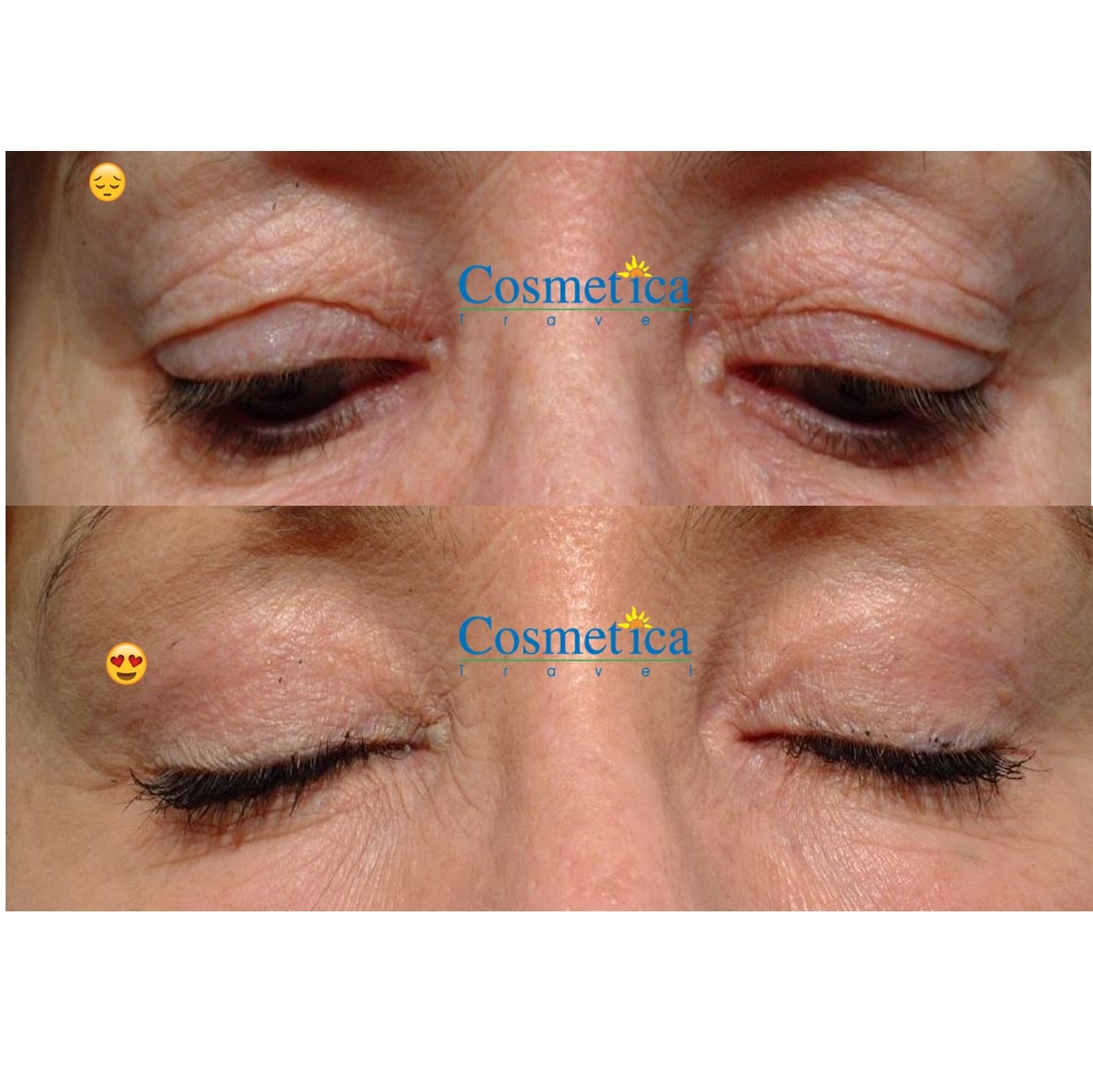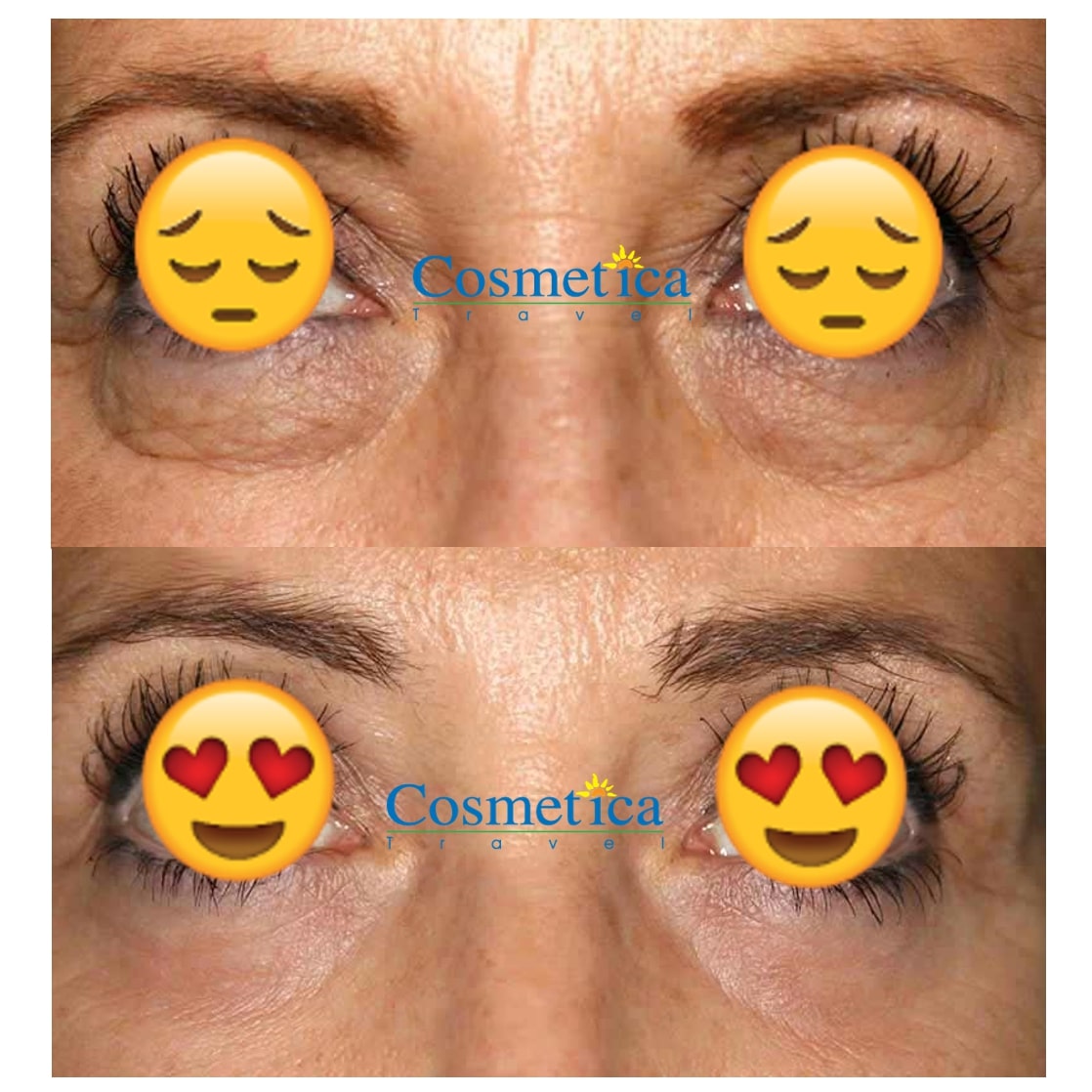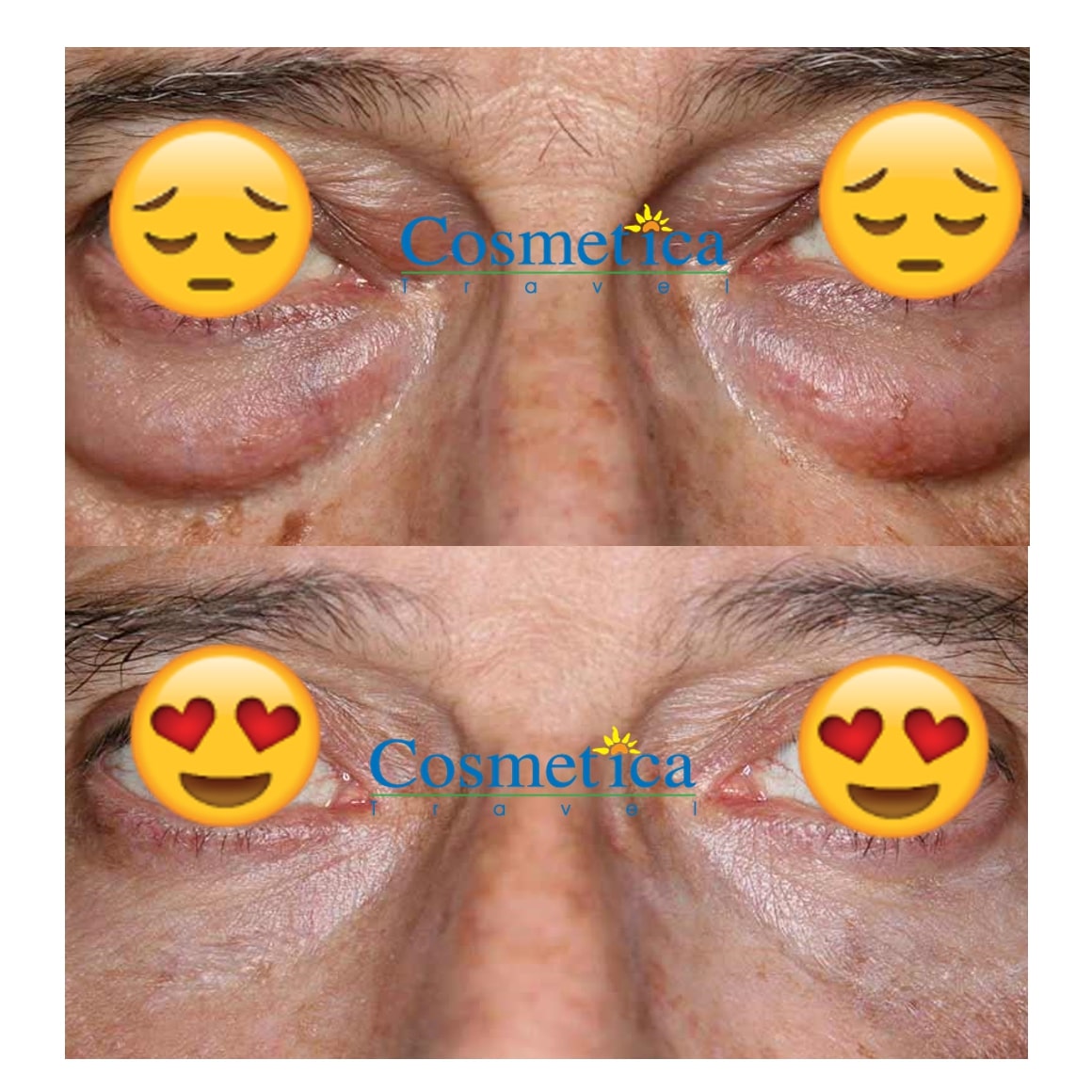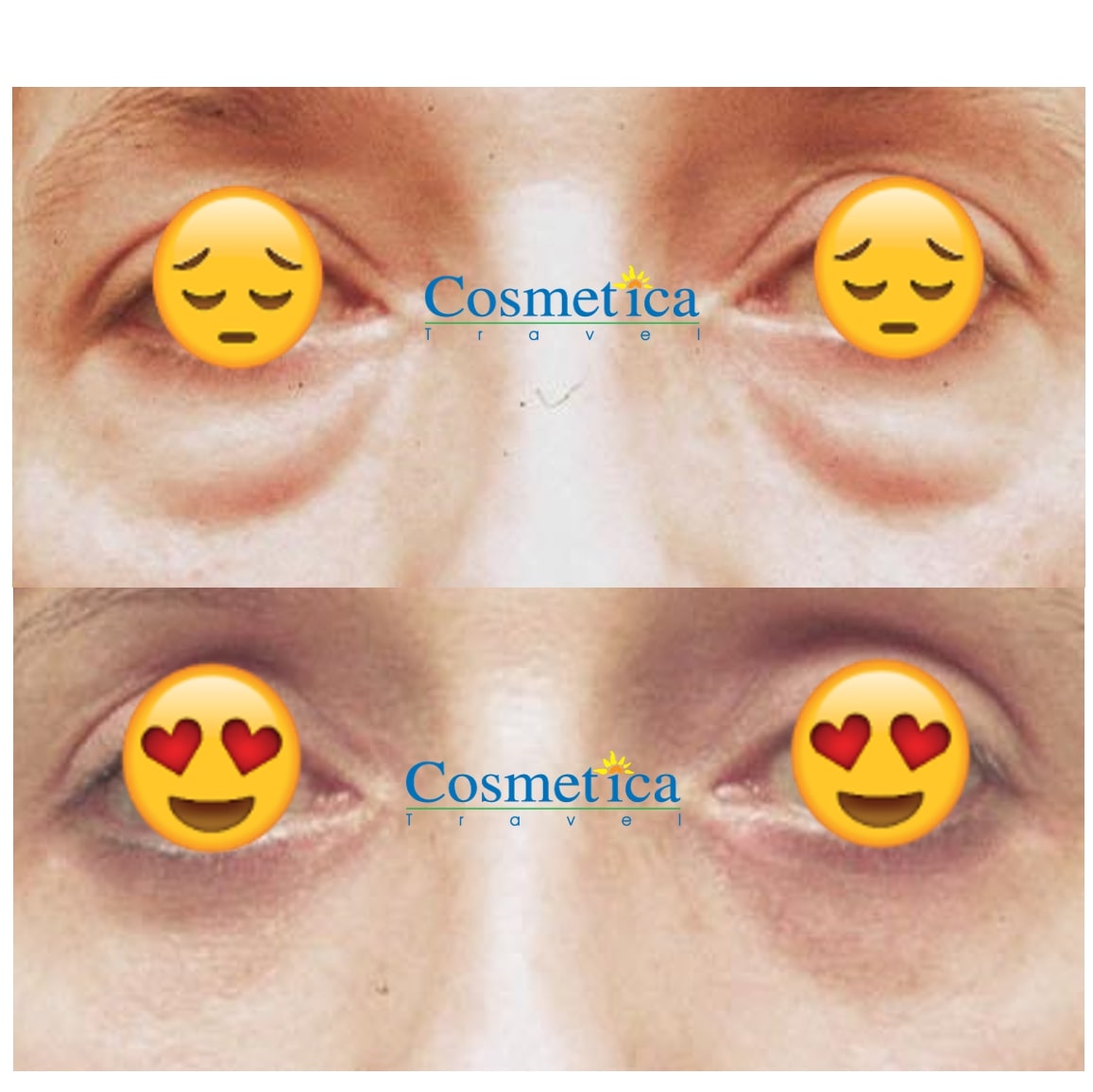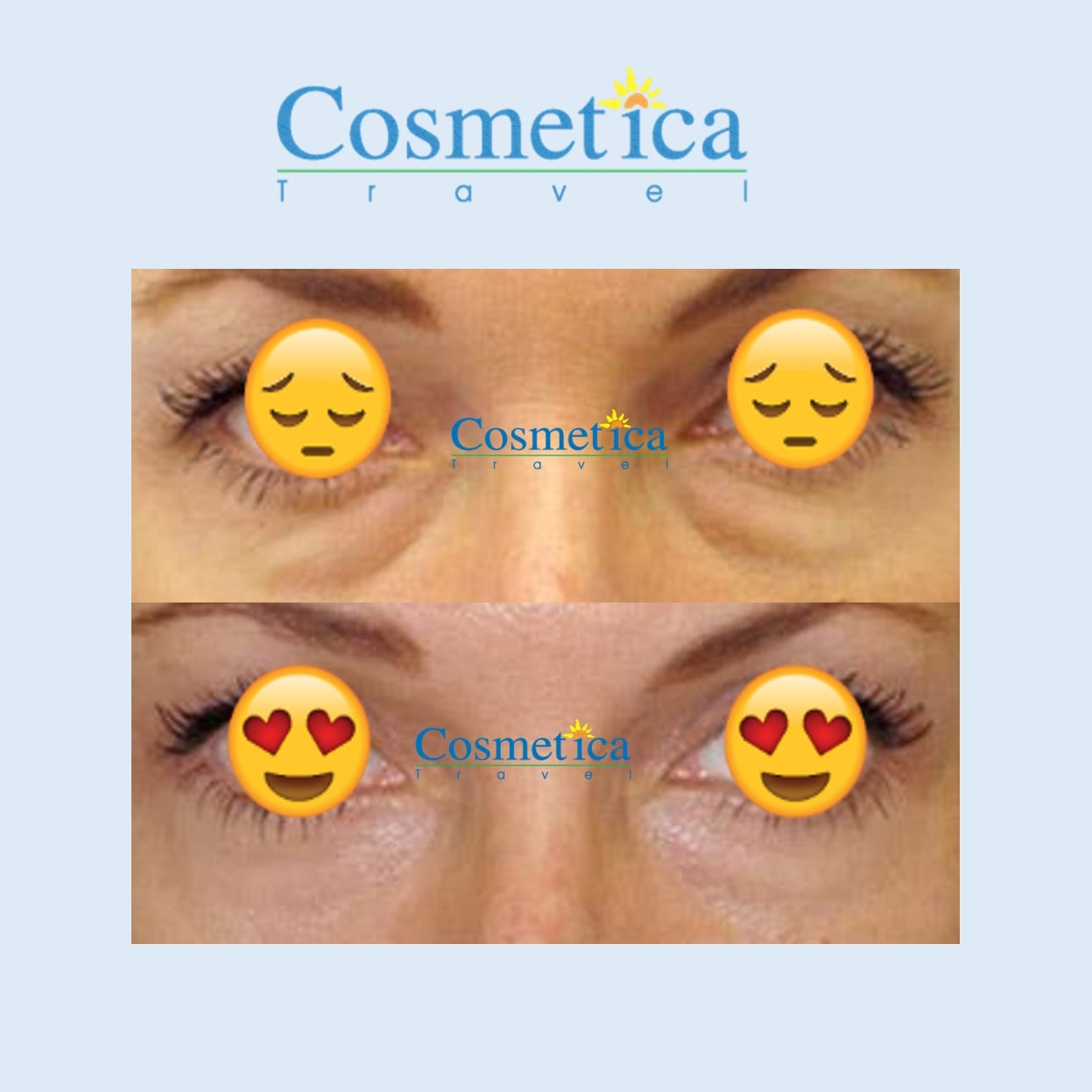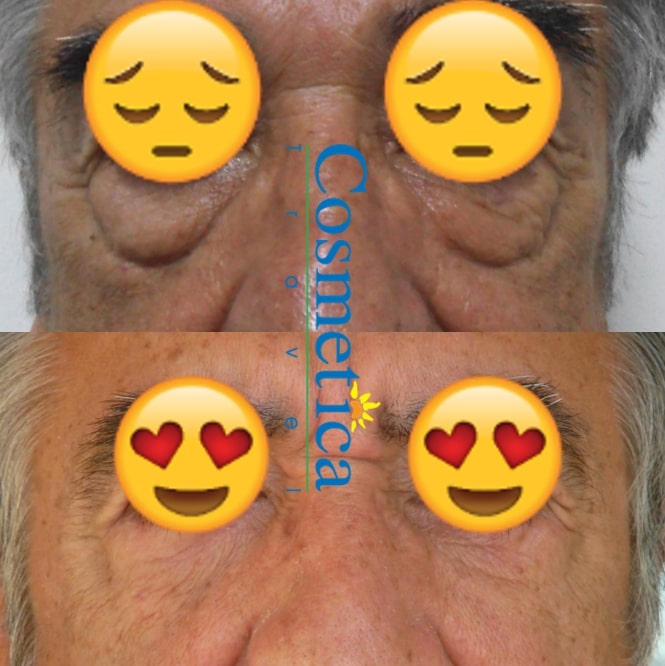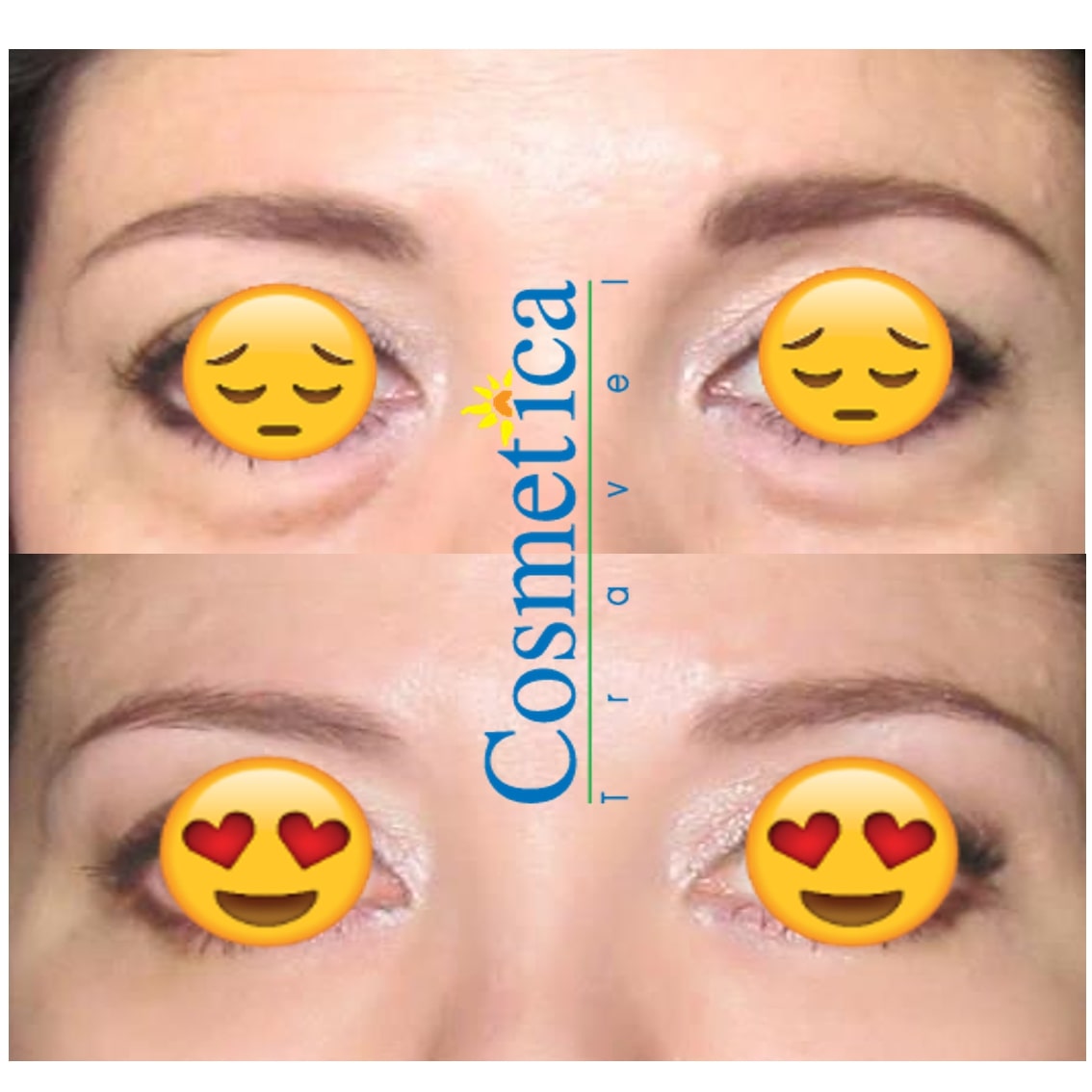Blepharoplasty or eyelid surgery: what is it?
One of the most performed and requested facial surgeries worldwide; blepharoplasty performs an important part in facial harmony and rejuvenation by correcting eyelid defects like dark circles, excess skin, and droopy eyelids. Also known as eyelid surgery, upper and lower blepharoplasty can be associated with other facial procedures like temporal lifting, face lifting and neck lifting to obtain optimal surgical results. Whether the patient desires a more lifted and youthful look or is experiencing vision problems, blepharoplasty remediates the effects of droopy eyelids and makes the eyes appear younger and more alert.
Good candidates for blepharoplasty
Blepharoplasty is destined for people looking for anti-aging treatments to saggy and droopy eyelids. While the latter is generally caused by aging, it may be due to an exhaustive and unhealthy lifestyle (fatigue, smoking, overwork, etc.).Candidates either seek out a blepharoplasty for aesthetic reasons like correcting significant bags under their eyes or saggy eyebrows, for others; however, a blepharoplasty goes beyond cosmetic concerns. A good candidate for the procedure can also have vision problems, and may therefore request a removal of excess skin from their upper eyelids for functional reasons. In addition, it is all-important to note that good candidates for a blepharoplasty must be healthy individuals.
Eyelid surgery cost in Tunisia
The cost of blepharoplasty in Tunisia with Cosmetica Travel is 70% lesser than in the United Kingdom.
| Operations | Our price | UK price | Making you save |
|---|---|---|---|
| 4 eyelids surgery cost | £ 1720 | £ 4909 | 67 % |
| 2 eyelids surgery cost | £ 1550 | £ 3620 | 60 % |
The average pricing in the United Kingdom is £ 4909; solely including anaesthesia, operating room facilities and surgeon’s fees.
The price of blepharoplasty in Tunisia is £ 1720; all-inclusive with a recovery stay at a five-star hotel, a chance to explore our exotic Tunisia, and a dedicated assistance team by your side.
It is all the same important to note that the low pricing is due to the cheaper cost of living, the currency exchange rate, tax laws, and lower insurance cost payment on the part of Tunisian doctors.
Blepharoplasty in Tunisia
| Operations | Anaesthetic | Procedure Time | Hospital Stay | Stay In Tunisia | Back To Work | All Inclusive Price |
|---|---|---|---|---|---|---|
| 4 eyelids surgery | General | 1-2 hour(s) | 1 night(s) | 4 night(s) | 7-10 day(s) | 1720 € |
| 2 eyelids surgery | General | 1 hour(s) | 1 night(s) | 3 night(s) | 7-10 day(s) | 1550 € |
Advantages of blepharoplasty surgery:
Eyelid surgery offers numerous advantages like:
- Fewer fine lines
- Elimination of under-eye bags
- Smoother and firmer skin around the eyearea
- Improved vision
- Rejuvenated appearance
- Besides the aforementioned advantages, blepharoplasty is also known for its fast recovery and permanent results.
How is blepharoplasty performed?
Before eyelid surgery:
During the pre-op consultation, the surgeon will discuss with the patient their expectations and desired outcome. A clinical examination is also important for the surgeon to decide on the procedure to perform. The latter includes examining the patient’s vision and tears, photographing their eyelids, and determining the causes of excess skin and/or under-eye bags. It is also paramount that the patient informs the surgeon of any medications they are currently taking (prescription drugs, herbal supplements, etc.) A medical check-up and a blood test are required
During eyelid surgery:
Blepharoplasty is usually performed under general anaesthesia by injecting numbing medication into the eyelids; however, a local anaesthesia may sometimes be considered. The procedure is expected to last for about an hour depending on the areas to operate (upper eyelids, lower eyelids, or both).
Step 1: Starting the procedure, the surgeon will cut the upper and/or lower eyelids:
- Upper eyelid blepharoplasty: upper eyelids are addressed first in the case of double-surgery. The surgeon will cut along the natural lines of the upper eyelids. Through these cuts, they will separate the skin from the underlying tissue, remove excess skin, muscle, and possibly fat.
- Lower-eyelid blepharoplasty: it requires a conjunctival incision (1 to 2 centimetres). Upon incision, excess skin and/or fat in the lower eyelids will be removed.
Step 2: The surgeon will conclude the procedure whether upper or lower blepharoplasty by suturing the cuts using small stitches and a bandage.
Post-operative effects & recovery after blepharoplasty
Recovery from blepharoplasty is relatively short compared to other facial procedures. Given that eyelid surgery is performed on an outpatient basis, the patient may leave the hospital shortly after the procedure; taking into account possible complications. The surgeon recommends that the patient take a recovery period of one week, and cease physical activities for two days.
Blepharoplasty is a painless procedure; however, a slight feeling of discomfort is expected after eyelid surgery. Therefore, the surgeon will prescribe the appropriate medication to alleviate any pain that the patient may experience. Other post-operative effects of blepharoplasty include swelling and bruising, but both are expected to fade away after a week or so. In addition, eyes may be watery and light-sensitive after surgery. Thus, the surgeon advises wearing dark sunglasses to protect the eyes from the sun during the recovery period. Post-operative scarring after blepharoplasty is minor and hardly noticeable and will disappear after a short period.
Advice before & after blepharoplasty:
Before blepharoplasty:
- Avoid medications containing aspirin, ibuprofen, anti-inflammatory, or anticoagulant two weeks before the procedure
- Stop smoking two weeks before and after the procedure
- Avoid alcoholic drinks one week before and after the procedure
- Women should avoid taking contraception pills one month before surgery
- Take a few days off work
- Adopt a healthy lifestyle
- Fast eight (8) hours before surgery
After blepharoplasty:
Your cosmetic surgeon will inform you of specific post-operative care, including:
- How to care for surgical site(s)
- Medications to apply or take orally
- When to return for follow-up care in Tunisia and when you can go back to your home country
- When special bandages or stitches are removed
- When normal activities can be possibly resumed
Learn more about:


